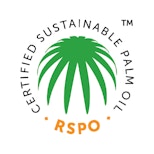The haze returned with a vengeance this year.
Dry weather, slash and burn farming, flicked cigarettes and neglected cooking pans have all been fingered for the air pollution from burning peatlands that has swept across Southeast Asia from June to October. But one group of people has shouldered much of the blame: smallholder farmers.
Of the 318,000 fire alerts in Indonesia so far this haze season, more than three quarters have occurred outside concession areas, according to Global Forest Watch data. This suggests that smallholders expanding their plots—rather than the big plantation companies—are responsible for most of the burning.
How to move smallholders, who tend to have less funds to invest in good seeds, fertiliser and machinery, away from destructive practices like slash-and-burn forestry is one of the biggest questions hanging over the the future of agribusiness and forests in Indonesia.
The Roundtable on Sustainable Palm Oil (RSPO), the industry’s largest certifier, is working on ways to get more smallholders to shift to sustainable farming techniques. One is the introduction of a new smallholder standard that makes it easier and cheaper for farmers to get certified.
But persuading smallholders to embrace sustainable farming is still difficult. Certification is expensive for farmers who don’t see the benefits of certification straight away, and low palm oil prices have meant farmers have been burning land as an alternative to using fertiliser.
To discuss how more smallholders can adopt sustainable practices, the Eco-Business podcast hosted Rukaiyah Rafik, also known as Uki, founder of civic society group Yayasan Setara Jambi, which helps smallholder farmers in Indonesia adopt sustainable practices. She was joined on the show by Ingrid Richardson, senior manager of sustainable sourcing at consumer goods firm Unilever, one of the world’s biggest buyers of palm oil, and the head of RSPO’s smallholder programme Ashwin Selvaraj.
Tune in as we talk about:
- Smallholders—are they really responsible for the haze?
- What is the biggest challenge of moving smallholders towards sustainable practices?
- Is certification out of reach for smallholders?
- How has RSPO’s new standard for smallholders affected the market?
- What a sustainable future look like for smallholders, and how can we get there?
























